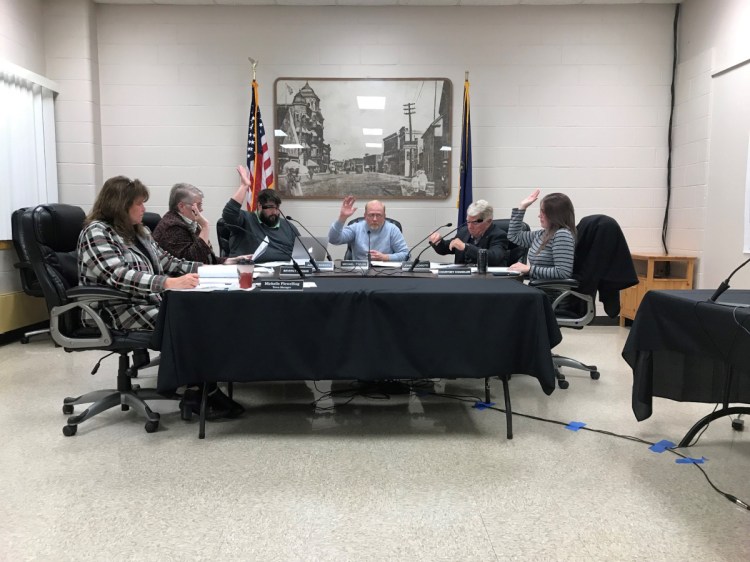FAIRFIELD — There are now at least nine towns in Somerset County with a local ordinance supporting food sovereignty.
Fairfield town councilors voted 5-0 Wednesday to approve a “Local Food and Community Self-Governance Ordinance,” which exempts local food producers in town from certain state laws.
“I think that people who are growing food and working with their neighbors really deserve the support to be doing that — to make food, particularly local food, an affordable and approachable commodity in our town,” Councilor Aaron Rowden said before the unanimous vote.
Under a state law passed last year, the state will not enforce state food requirements in the case of direct producer-to-consumer sales such as a dairy farmer selling raw milk directly to a customer or someone selling baked goods from an unlicensed kitchen, in cities and towns with a local food sovereignty ordinance.
Over 40 Maine communities have adopted their own ordinance, according to Local Food RULES, an organization working to build the food sovereignty movement across the state. Fairfield joins eight other Somerset County towns — Bingham, Moscow, Solon, Madison, Anson, Athens, Moose River and Starks — in embracing local food sovereignty, according to a September document on the Local Food RULES website.
Council Chairman Michael Taylor said he had heard one concern about the ordinance and whether it would include marijuana products, but Taylor and several other councilors appeared comfortable that would not be the case.
Councilor Courtney Chandler said language in the ordinance definitions and purpose “kind of excludes” marijuana products. Chandler said the ordinance is “specifically talking about traditional food from family farms and trying to preserve that.”
“I think that in terms of this ordinance and our ability as a town to interpret the ordinance in a reasonable way, we don’t have to interpret it to include cannabis products,” Rowden said.
Wednesday night’s vote followed a public hearing on the food sovereignty proposal that included zero input from residents. Several Fairfield farm owners contacted previously by the Morning Sentinel did not think the new ordinance would affect their current operations — with some expressing support for the general idea of food sovereignty, and at least one farm owner registering a concern about the possibility of food-related illness in the absence of regulations.
In June 2017, the Legislature passed the Maine Food Sovereignty Act, allowing municipalities to create their own local ordinances governing direct food sales from producers to consumers. The Legislature also amended the food sovereignty law last October to ensure that meat and poultry products will continue to fall under state inspection and licensing requirements.
Councilor John Picchiotti, who also represents Fairfield, Mercer and Smithfield in the Legislature, voted against the Maine Food Sovereignty Act last June. He speculated Wednesday night that was because of concerns about the original bill’s possible effect on meat and poultry licensing and inspection. Picchiotti said he supports the general concept of municipalities being able to pass their own food sovereignty ordinances.
According to Town Manager Michelle Flewelling, the Fairfield food sovereignty push was town-driven and not initiated at the request of local farmers or food producers. After the vote Wednesday night, she anticipated that the new ordinance may affect future businesses in Fairfield more than existing food producers. Flewelling said the town will provide information on the new ordinance via social media but expects the primary form of education on the new language to come through the town’s code enforcement office.
Matt Junker — 861-9253
Twitter: @mattjunker
Send questions/comments to the editors.


